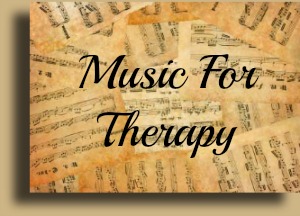
The Healing Power of Music Therapy
Music therapy is a form of experiential therapy that can help with addiction recovery. This therapy is when music is used to help evoke different emotions, change mood patterns, and benefit the patient in other ways. You don’t have to be knowledgeable about music to participate in this therapy; anyone can benefit from it.
A trained music therapist can suggest a specific program, but if this isn't part of your recovery program, you can still incorporate music into your addiction recovery process.
A Calming Force
Research suggests that music can be a great force in calming the body and mind. Being able to calm down and relieve frustration and stress is essential for success in addiction therapy, so this is a great tool to add to your recovery box. Music has an effect on your mood, and can be used to regulate moodiness brought on by withdrawals.
Music is also helpful when managing anxiety, and meditating. This is because music, especially when it has a strong beat, improves focus and concentration. This improved focus has also been shown to help with chronic pain and mental disorders such as depression. If you can find a program of music therapy that is calming to you, you will find the symptoms of your addiction and co-occurring disorders much more manageable.
Tap Into Creativity
Creative experiential therapy has been so successful for recovering addicts because it helps them tap into parts of their brains that have been damaged, and aids in the healing process. Music also has a way of accessing the spirit and helping the healing process there, too. You don’t have to be a music buff to be able to use this type of creative healing, you just have to be willing to give it a try.
There are many ways to participate in music therapy. The simplest way is to listen to the tracks your music therapist recommends and go through their exercises, Other forms of music therapy include learning to play an instrument, making music on a digital composer, writing lyrics, or analyzing lyrics written by others.
Strong Associations
Music is capable of creating strong associations in our psyche that can take us back to another time and place, or remind us of situations, places or people. Music can also bring back feelings. Because music can be such a strong stimulator of our thoughts and feelings, it’s important to be choosy about what kind of music you listen to during addiction recovery.
Some music may remind you of drug use and addictive behaviors, which can bring on a craving or depression. Others types of therapy will remind you of better, more hopeful times. You can also build new associations with new types of music that you find helpful. Think of these new associations as a soundtrack for your recovery. Make a workout playlist, a driving one, a relaxation one, etc, and keep a journal about how certain types of music make you feel.
Check out these great sections